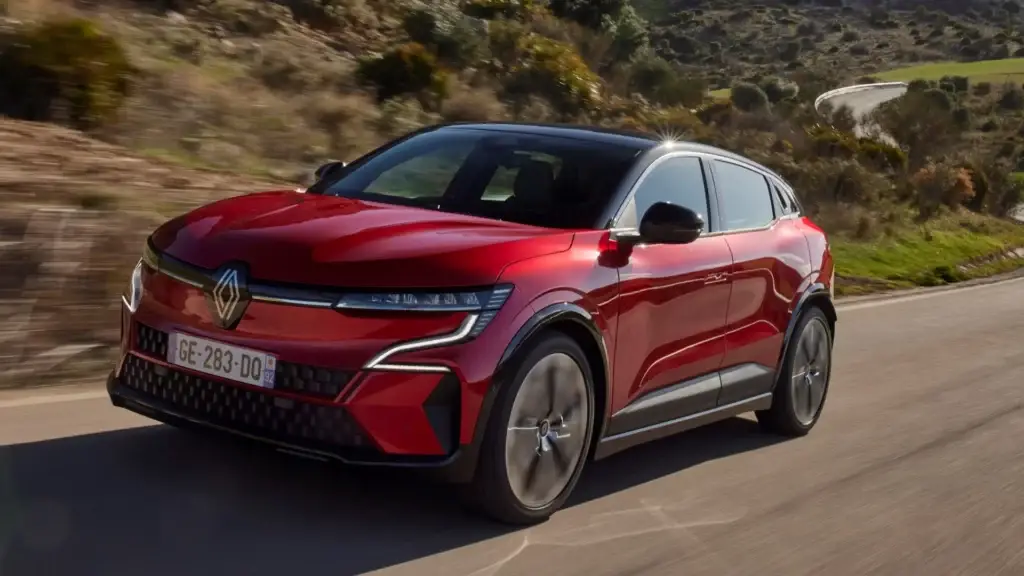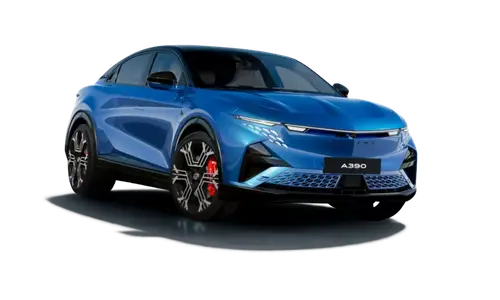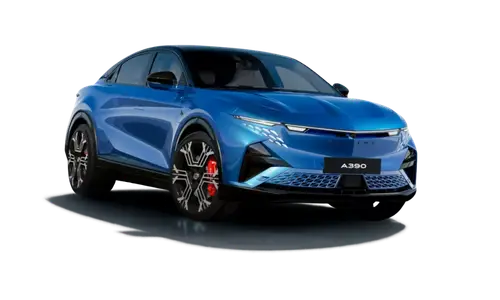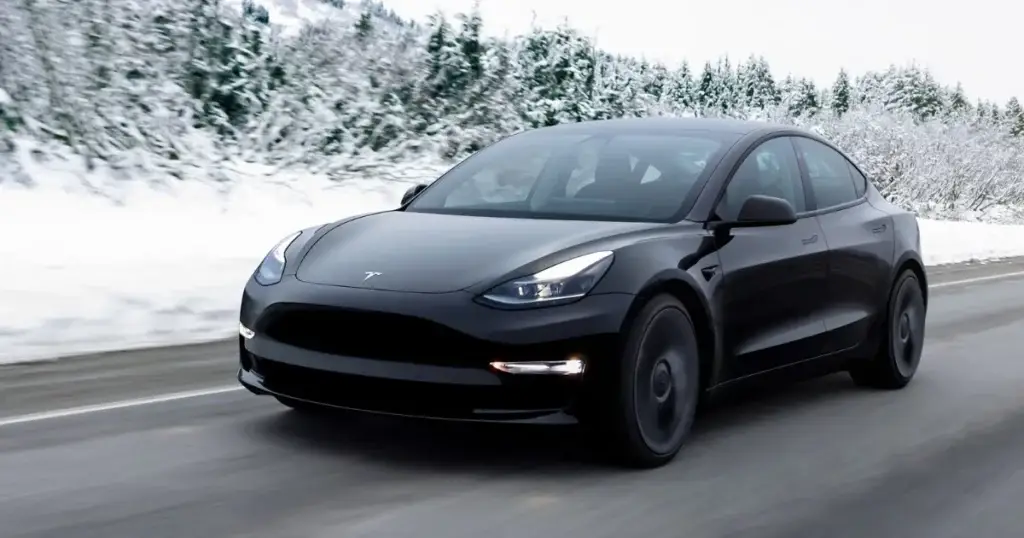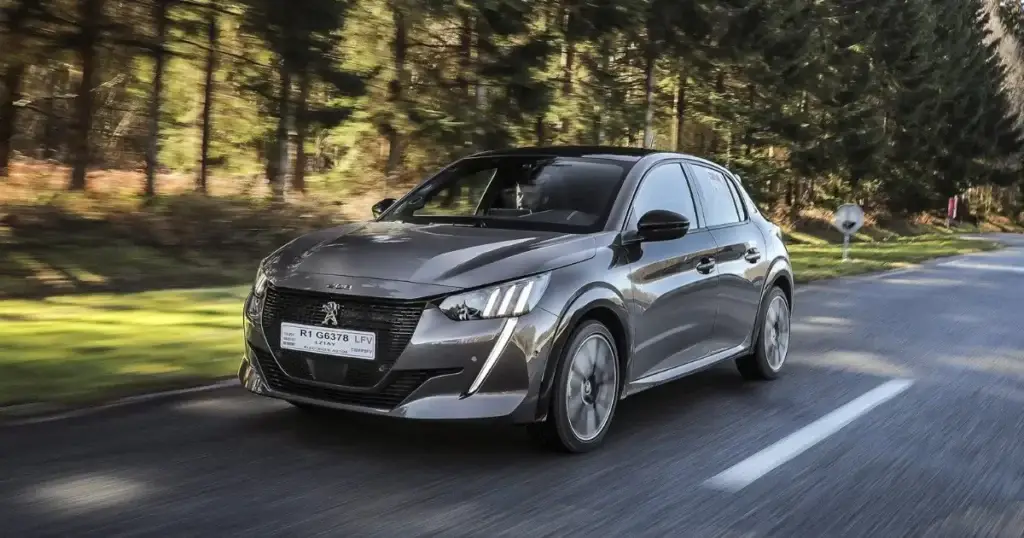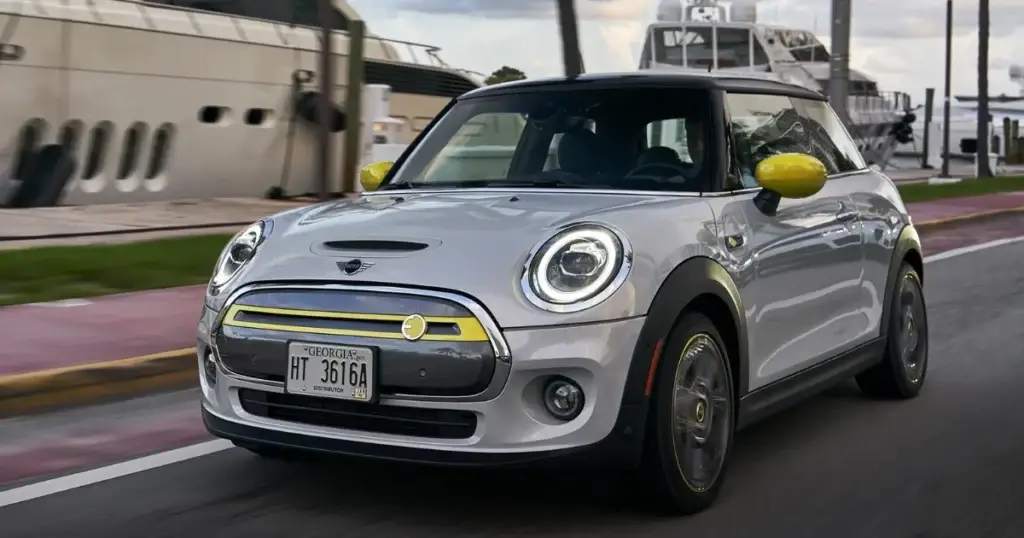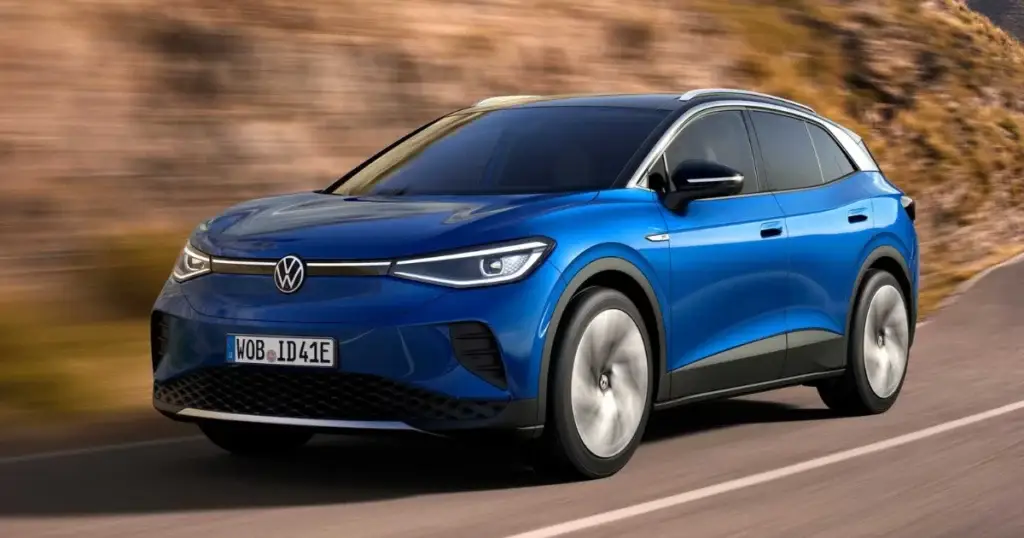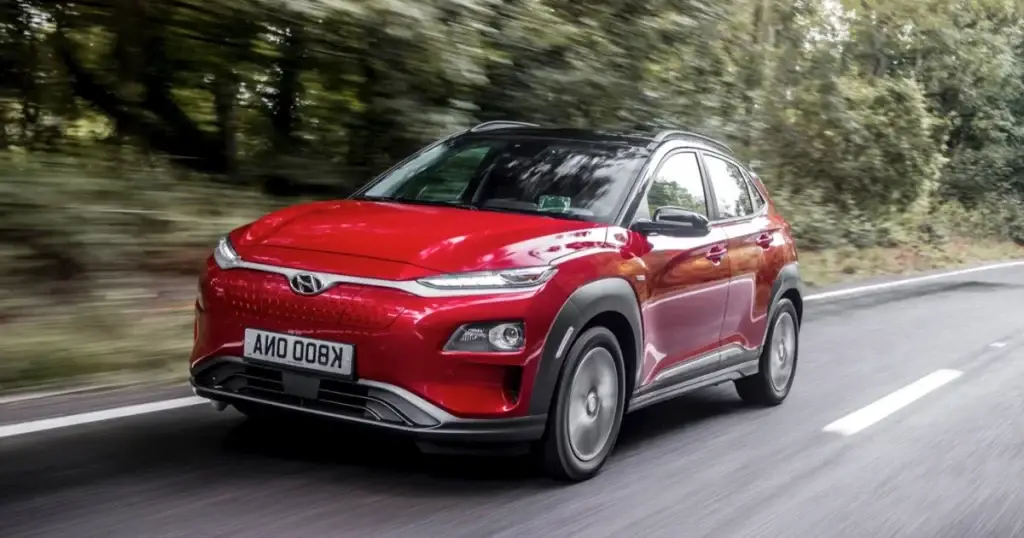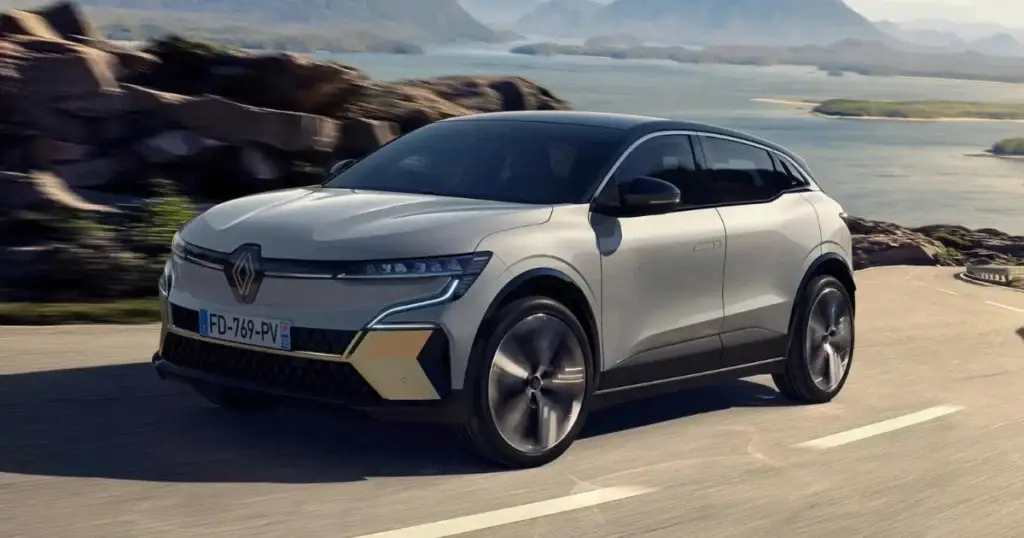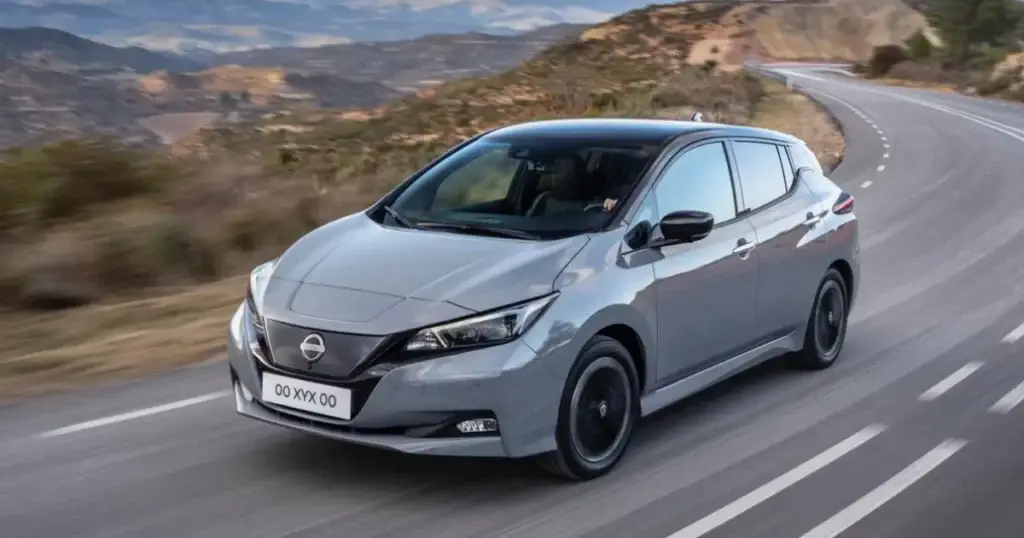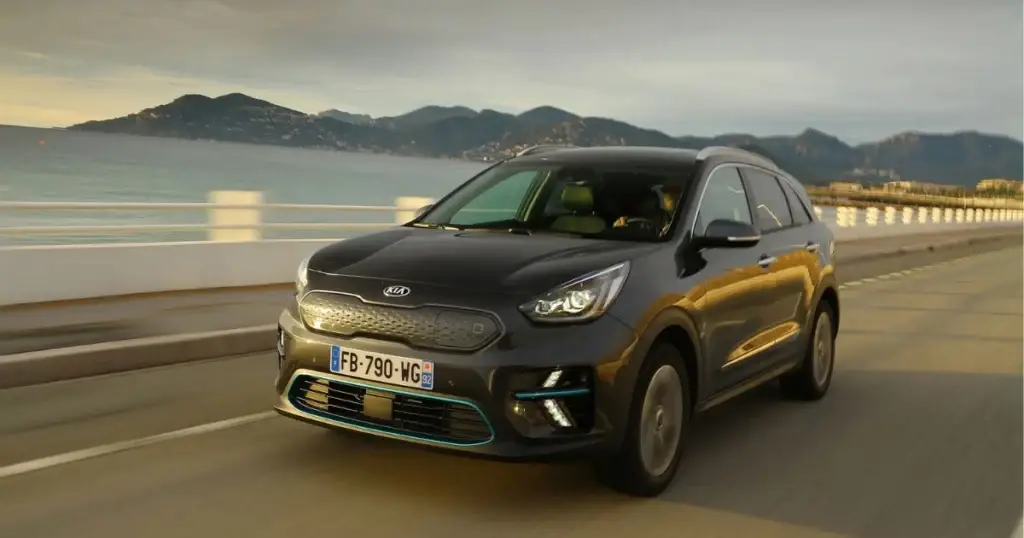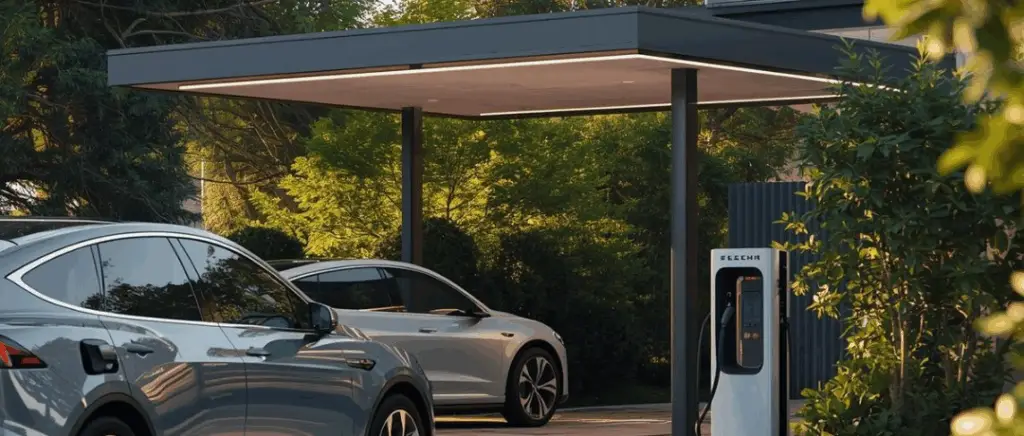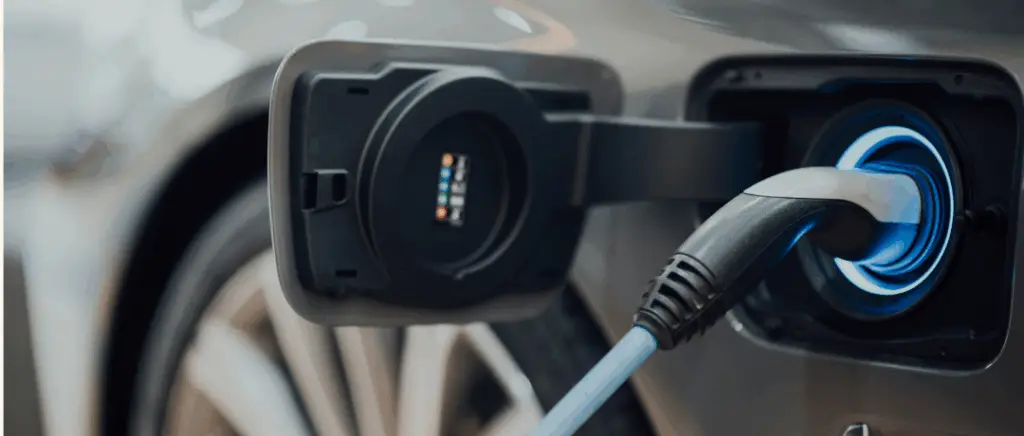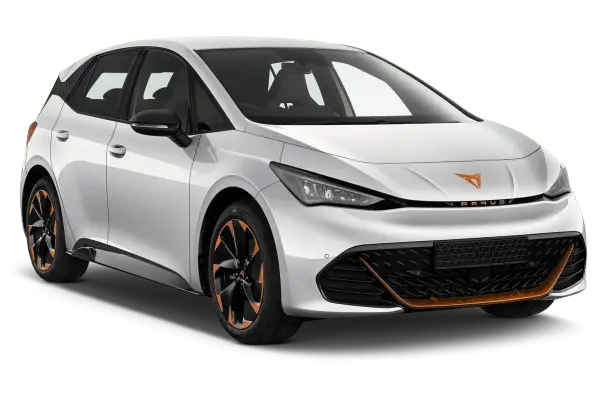
VS
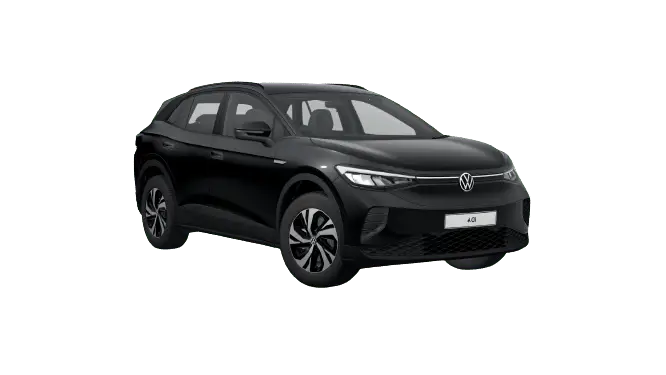
Compare the Cupra Born vs Volkswagen iD4in our electric car comparison tool
Monday to Friday 9am - 12.30pm - 2pm - 7pm
How to determine the fuel consumption of an electric car
There are various units of measurement as well as certain technical data that may influence energy consumption of an electric vehicle. That's what we'll be looking at in this article.
Tools for measuring the fuel consumption of an electric car
It is possible to measure the average fuel consumption of an electric vehicle. The unit of measurement is MPGe or Miles Per Gallon equivalentwhich measures the average distance travelled per unit of energy consumed.
According to theEPA (US Environmental Protection Agency), in terms of energy value, the American agency estimated that the consumption of one gallon of petrol (3.8 litres) represented a electricity consumption equivalent to 33.7 kWh.
The MPGe rating is therefore an effective tool for comparing the fuel consumption of an electric car with that of a conventional car. thermal vehicle. At the same time, this unit of measurement makes it possible to compare the average energy consumption of different electric car models, with the aim of identifying the most energy-efficient electric models.
Another possible way of measuring the energy consumption of an electric vehicle is to use the kilowatt-hour (kWh) unit to determine the number of kWh consumed per 100 km/h.
Characteristics that influence the fuel consumption of an electric car
The fuel consumption of an electric car will be strongly influenced by a number of factors, including the size and power of its battery. The specific characteristics of the electric battery will therefore be a factor to take into account if you wish to acquire an electric vehicle with energy consumption reasonable.
Read also : ADEME: why opt for a lighter battery for your electric car?
What's more, the size of the electric car itself is generally an indication of whether it consumes more or less energy. In fact, as a general rule, the largest electric cars are the most energy-efficient. compact will also be the most fuel-efficient, compared to larger models such as the Electric SUVs.
So, logically, a electric city car such as the Fiat 500e will be far less energy-intensive than an electric SUV such as an Mercedes EQCfor example. If we compare the energy consumption of the two electric cars, we can see that the Fiat 500e will have a fuel consumption of 13.2 kWh/100 km for its 23.8 kWh battery, while a Mercedes EQC will consume 22.2 kWh/100 km according to the WLTP standard.
If you are planning to buy an electric car, but you have a fairly limited budgetSo it may be a good idea to opt for a relatively compact electric car. In fact, a smaller electric vehicle will tend to consume lessas well as representing a lower initial investment.
Read also : Top 12 small electric cars for the city
What's more, the energy consumption of an electric car also depends on other factors specific to each electric model, but also on the type of travel carried out.
Electric cars tend to consume more energy on the motorwayThis increase is mainly due to the speed reached by the electric vehicle. So, if the majority of your journeys involve long-distance routesIn this case, you'll tend to use less energy. greaterwhich will increase your electricity costs.
In addition, the type of driving style adopted is one of the factors influencing the energy consumption of an electric vehicle.
Indeed, driving more slowly and adapt your behaviour flexible allows reduce the energy consumed by the vehicle. It is also relevant to develop aeco-driving which will help you to reduce your energy consumption during your journeys.
Discover the electric cars available from Beev
The most fuel-efficient electric cars
Let's take a look at the rankings for the most energy-efficient electric vehicles.
| Modèles | Consommation en cycle WLTP (nombre de kWh / 100 km) | Table Prix catalogue |
|---|---|---|
|
Tesla Model 3
|
14.7 kWh
|
53 490 €
|
|
Peugeot e-208
|
14.9 kWh
|
32 600 €
|
|
Mini Cooper SE
|
15.9 kWh
|
37 600 €
|
|
Volkswagen ID. 4
|
17 kWh
|
43 000 €
|
|
Hyundai Kona Electric
|
14.7 kWh
|
36 400 €
|
|
Renault Megane E-Tech
|
13.3 kWh
|
42 900 €
|
|
Nissan Leaf e+
|
15.2 kWh
|
43 050 €
|
|
Kia Niro EV
|
16.2 kWh
|
44 490 €
|
Tesla Model 3
The famous electric car model from the American manufacturer, characterised by its many advantages, particularly in terms of power and energy efficiency, is the first of its kind in the world.autonomyIt also has the added advantage of being particularly easy to use. thrifty in terms of the energy it consumes.
La Tesla Model 3 is in fact one of the most popular electric models efficient in terms of energy sobriety.
Fuel consumption: 14.7 kWh / 100 km - 132 MPGe
Battery: 60 kWh
Range: 491 km
Peugeot e-208
La Peugeot e-208, electric city car the French car par excellence, is perfectly suited to city driving, for short and medium-distance journeys. What's more, the Peugeot e-208available in six trim levels and three different engines, also boasts an energy consumption of moderate for its 50 kWh battery.
Fuel consumption: 14.9 kWh / 100 km
Battery: 50 kWh
Range: 362 km
Read also : What are the best French electric cars?
Mini Cooper SE
For the Mini Cooper SEThis other emblematic model of the 100% electric city car, with its distinctive design, also has an advantage when it comes to energy consumption. With a 135 kW (184 bhp) engine, this electric city car consumes relatively little fuel. restrictedin keeping with its size compact.
Consumption: 15.9 kWh / 100 km - 110 MPGe
Battery: 32.6 kWh
Range: 234 km
Volkswagen ID. 4
Le Volkswagen ID. 4, Electric SUV from the German brand, has the advantage of relatively low energy consumption, especially for its size. In fact, the Volkswagen ID. 4 remains an electric car fairly energy-efficientcompared with other electric SUV models. Despite its reduced fuel consumption, the Volkswagen ID. 4 is not restricted, reaching 531 km.
Consumption: 17 kWh / 100 km - 107 MPGe
Battery: 52 kWh
Range: 531 km
Hyundai Kona Electric
The first 100% electric SUV marketed by the Korean manufacturer in France, the Hyundai Kona Electric is, like the Volkswagen ID. 4This is an electric SUV that is extremely energy-efficient. This makes this electric vehicle particularly efficient in terms of the energy it consumes during journeys, while ensuring a smooth, sporty drive.
Fuel consumption: 14.7 kWh / 100 km - 120 MPGe
Battery: 39 kWh
Range: 484 km
Renault Megane E-Tech
Another model of French electric car signed by the brand au losange, the Megane E-Tech is a electric saloon emblematic car. With a relatively limited battery power of 96 kWh and a battery capacity of 50 kWh, the Megane E-Tech is not one of the most efficient electric vehicle models.
Indeed, the Megane E-Tech is better suited to short and medium-distance journeys in urban areas.
On the other hand, its low power output means that it can be seen as an electric car. low energy consumption This makes it a particularly environmentally-friendly electric model.
Consumption: 13.3 kWh / 100 km
Battery: 40 kWh
Range: 300 km
Nissan Leaf e+
Now it's time for the Nissan Leaf e+the Japanese manufacturer's famous electric vehicle. Indeed, this 100% electric saloon benefits from its versatile footprint, with compact dimensions that can also be seen as a perfectly adapted family model.
What's more, the Nissan Leaf e+ has the advantage of displaying a relatively moderate energy consumption. This is sure to reduce the energy costs associated with your journeys.
Fuel consumption: 15.2 kWh / 100 km - 111 MPGe
Battery: 62 kWh
Range: 385 km
Kia Niro EV
We end this ranking with the Kia Niro EV. Despite its relatively high battery power and range, the Korean electric SUV has a reasonable energy consumption of 16.2 kWh / 100 km, which puts it on the list of energy-efficient electric vehicles.
Fuel consumption: 16.2 kWh / 100 km - 112 MPGe
Battery: 64 kWh
Range: 460 km
In conclusion
There are many reasons why you might want to opt for a fuel-efficient electric vehicle. If you're sensitive to environmental issues, you'll be more likely to opt for a fuel-efficient electric car that helps limit your CO2 emissions.
Similarly, if you're concerned about the high cost of electricity, it's worth switching to a less energy-intensive electric vehicle to limit your electricity bills.
What's more, there are many factors that influence the energy consumption of your electric car, such as the size of the vehicle, the power of its battery and the type of journey you make.
Fortunately, there are also numerous tips for reducing the energy consumed by your vehicle. These tips relate in particular to type of driving adopted on the road and the solution recharge used. So, if you're looking for an electric car with reasonable fuel consumption, we hope this ranking has helped you make your choice.
